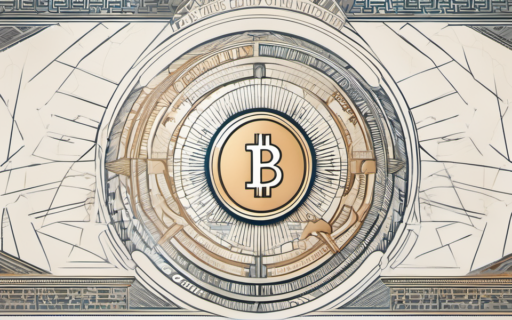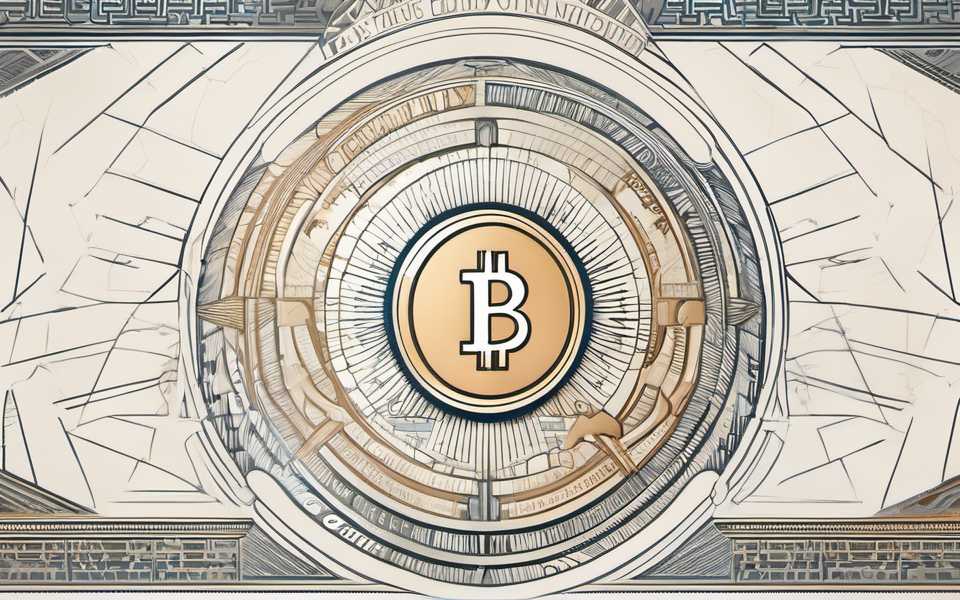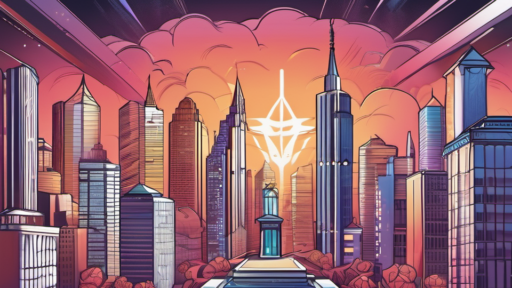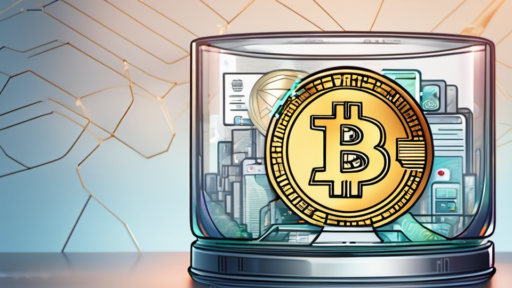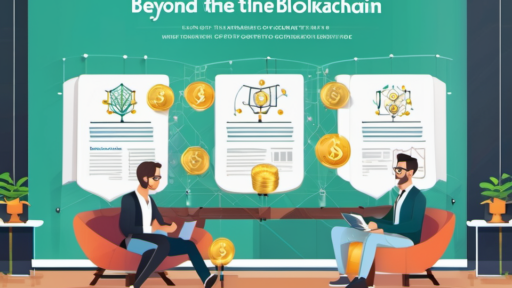You’ve probably heard of Bitcoin, but did you know there’s a whole world of crypto beyond just buying and selling coins? Crypto isn’t just a financial instrument anymore. It’s transforming the way we think about decentralized finance (DeFi), data privacy, and even how we interact with the Internet of Things (IoT). This technology is shaking up the world and changing the way we live, work, and even govern ourselves. But it’s not all abstract concepts and tech jargon. There are tangible, real-world examples of how crypto is already impacting our daily lives.
1. Lending and Borrowing Reimagined: Decentralized Finance (DeFi)
Forget traditional banks with their complicated procedures and hefty fees. DeFi empowers individuals to take control of their finances like never before. Using smart contracts, anyone can lend, borrow, and trade crypto assets directly with other users. This opens up a world of new possibilities for individuals and businesses alike. Imagine:
- Earning interest on your crypto holdings: By lending your crypto to other users, you can earn passive income, rather than letting it sit idle in an exchange.
- Accessing loans quickly and transparently: Borrow crypto at lower interest rates and faster processing times than traditional lenders.
- Experimenting with novel financial products: DeFi opens doors to innovative products like flash loans and stablecoins, revolutionizing the financial landscape.
This is not just a technical concept: Projects like Aave, Compound, and MakerDAO are already bringing DeFi to life. These platforms allow you to earn interest on your crypto, borrow funds for various purposes, or even create your own stablecoin pegged to a fiat currency. This is just the tip of the iceberg; the DeFi ecosystem is constantly evolving, and the possibilities seem limitless.
2. A More Secure and Transparent World: Supply Chain Management
Imagine a world where you can trace the origin of every product you buy, from the coffee beans in your morning latte to the clothes you wear. This is the promise of supply chain management using blockchain technology.
- Enhanced transparency: Every step of the supply chain is recorded on a tamper-proof blockchain, eliminating the need for complex paper trails and fostering greater trust between all parties involved.
- Improved efficiency: Smart contracts automate processes like payments and approvals, reducing administrative burdens and ensuring seamless operations.
- Increased traceability: Consumers can gain a deeper understanding of product origins, promoting sustainability and ethical sourcing practices.
Companies like Walmart, Nestle, and Maersk are already using blockchain technology to revolutionize their supply chains. Through these solutions, we can expect to see more ethically sourced products, reduced waste, and increased transparency in the global supply chain.
The Blockchain Impact on the Supply Chain
| Traditional Approach | Blockchain Approach |
|—|—|
| Complex, paper-based processes | Automated and streamlined |
| Potential for fraud and data manipulation | Transparency and immutability |
| Lack of traceability | Enhanced traceability and origin tracking |
| Time-consuming and inefficient | Faster and more efficient |
3. A New Era of Digital Ownership: Non-Fungible Tokens (NFTs)
NFTs are unique digital assets that can represent ownership of almost anything, from artwork and music to collectibles and virtual land. Forget the old way of proving ownership; with NFTs, you’re not just holding a copy, you own the original asset on a blockchain.
- Unique and Irreplaceable: Each NFT is unique and cannot be duplicated or replicated, unlike digital files that can be easily copied.
- Verifiable Ownership: NFTs store ownership information on a blockchain, providing irrefutable proof of ownership and reducing the risk of counterfeiting or fraudulent claims.
- Growing Marketplace: The NFT market is booming, with a wide variety of platforms facilitating buying, selling, and trading of NFTs across different categories.
Examples abound. Digital artists can monetize their work like never before, collectors can proudly showcase their rare treasures, and musicians can connect directly with fans. NFTs are disrupting industries ranging from gaming and virtual worlds to sports and luxury goods. This digital renaissance has only just begun.
4. A More Secure and Trustworthy Future: Identity Verification
Tired of long and tedious KYC (Know Your Customer) processes? Blockchain-based identity verification solutions promise a more secure, efficient, and user-friendly way to prove who you are.
- Decentralized Control: Individuals control their own identity data stored on a blockchain, empowering them to share specific information with relevant parties without needing to reveal everything.
- Increased Security: Blockchain’s immutability prevents identity fraud and manipulation, offering a more robust and tamper-proof method for verifying identities.
- Efficient Access Control: Individuals can choose which information they want to share and with whom, eliminating the need for multiple copies of the same identity information and making the process less bureaucratic.
Projects like Civic and SelfKey are spearheading this revolution, empowering individuals with greater control over their digital identity. Imagine a future where you can seamlessly prove your age at a bar or your identity when signing up for a service, without needing to provide numerous personal details.
5. A Smarter and More Sustainable World: Smart Cities and IoT
- Optimizing urban infrastructure: By leveraging the power of blockchain and IoT, cities can manage traffic flow, optimize energy consumption, and improve public services, creating more livable urban environments.
- Facilitating citizen participation: Blockchain can empower citizens to participate in city governance, contributing to decision-making and development of solutions that benefit everyone.
- Enhancing transparency and accountability: Blockchain creates a permanent record of transactions and data, ensuring transparency in city governance and resource management.
With projects like CityChain and CivicChain already putting these concepts into action, smart cities are becoming more efficient, responsive, and sustainable. Imagine cities with real-time traffic management, responsive public lighting, and transparent resource allocation. Blockchain and IoT are turning these dreams into a reality.
6. Empowering Artists and Creators: The Rise of Decentralized Autonomous Organizations (DAOs)
Forget traditional hierarchies and gatekeepers. DAOs empower creators to collaborate and manage their work in a decentralized, transparent, and democratic manner.
- Collaborative ownership: DAOs are community-owned organizations where members contribute to projects and share in the rewards. This means artists can retain greater control over their work and be fairly compensated for their contributions.
- Decentralized governance: All decisions are made collectively through voting on the blockchain, ensuring fairness and transparency in the process.
- Frictionless participation: Anyone can join a DAO and contribute their talents or resources, regardless of their background or location.
These platforms, like Moloch DAO and MakerDAO, are revolutionizing the way creators collaborate, manage their resources, and make decisions. DAOs are proving that collaboration and democratic decision-making are not just ideals but tangible tools for building more inclusive and innovative communities.
7. Redefining Health Data Ownership: Revolutionizing Healthcare
Blockchain


